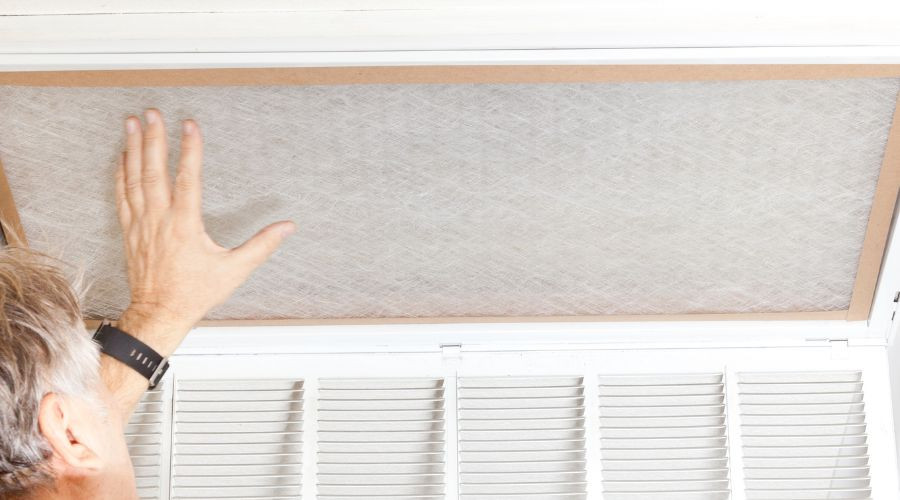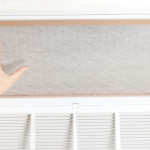AC and Furnace Filters Explained
Replacing air filters is essential for the efficient operation of the heating and cooling system and for maintaining healthy indoor air quality. However, people may be unaware of how often air filter replacement should be done and the benefits of replacing them on time. This guide will discuss AC and furnace filters, including what they do, how often they should be changed, and the advantages of replacing them when needed.
What Do Air Filters Do?
Air filters are an important part of HVAC systems, trapping airborne particles that would otherwise circulate throughout the home and into system components. They capture dust, pollen, pet dander, and other contaminants. Without proper filtration, dust and debris would accumulate on sensitive components like fan motors and heat exchangers, reducing efficiency and causing system strain that can lead to premature system failure.
Beyond equipment protection, changing air filters improves indoor air quality by removing respiratory irritants from circulation. However, filters can get dirty and clogged over time, which can cause inefficiency, higher costs, poor indoor air quality, and more problems, so they must be replaced periodically. Regular air filter replacement ensures these silent protectors continue performing their vital role in the home comfort system.
How Often Should They Be Replaced?
 Regular air filter replacement is extremely important for the heating and cooling system and for maintaining optimal indoor air quality. It’s generally recommended to change air filters every 90 days or three months, though this timeline can vary based on several factors like the size and type of filter and the household environment. The living environment can impact the filter replacement frequency because homes with pets, smokers, or high dust levels can cause filters to get dirty quicker, requiring more frequent filter changes.
Regular air filter replacement is extremely important for the heating and cooling system and for maintaining optimal indoor air quality. It’s generally recommended to change air filters every 90 days or three months, though this timeline can vary based on several factors like the size and type of filter and the household environment. The living environment can impact the filter replacement frequency because homes with pets, smokers, or high dust levels can cause filters to get dirty quicker, requiring more frequent filter changes.
A visual inspection of the air filter once a month remains one of the most reliable ways to determine when a filter change is needed. When a furnace or AC filter is caked with dust and debris or looks dirty, it should be replaced. Dirty filters force heating and cooling systems to work harder, increasing energy consumption and costs. They can also cause increased asthma and allergy symptoms and can even lead to dangerous situations, so it’s important they are replaced when needed.
Benefits of Regular Air Filter Replacement
 Replacing AC and furnace filters when needed delivers many benefits for a household. Timely air filter replacement improves indoor air quality by removing accumulated dust, allergens, and pollutants, helping people in the home stay healthier and reducing asthma and allergy symptoms. Beyond cleaner air, consistent filter changes can help extend the lifespan of heating and cooling equipment. When filters become dirty and clogged, it can cause breakdowns, and the system could even overheat. So, changing filters when needed helps with system longevity and helps prevent problems and dangers.
Replacing AC and furnace filters when needed delivers many benefits for a household. Timely air filter replacement improves indoor air quality by removing accumulated dust, allergens, and pollutants, helping people in the home stay healthier and reducing asthma and allergy symptoms. Beyond cleaner air, consistent filter changes can help extend the lifespan of heating and cooling equipment. When filters become dirty and clogged, it can cause breakdowns, and the system could even overheat. So, changing filters when needed helps with system longevity and helps prevent problems and dangers.
Dirty filters also cause inefficiency, which raises heating and cooling costs. This is because a clogged air filter causes the system to work harder and use more energy, increasing operating costs. So, the energy efficiency improvement from replacing filters on time translates to lower utility bills. Additionally, clean filters promote more consistent airflow throughout the home, eliminating discomfort and ensuring the home stays at the right temperature.
About Swick Home Services
Swick Home Services has more than 40 years of experience serving the Marquette community. They provide 24/7 support, a price match guarantee, and membership plans. Call them for furnace and AC filter replacement in Marquette, MI.



